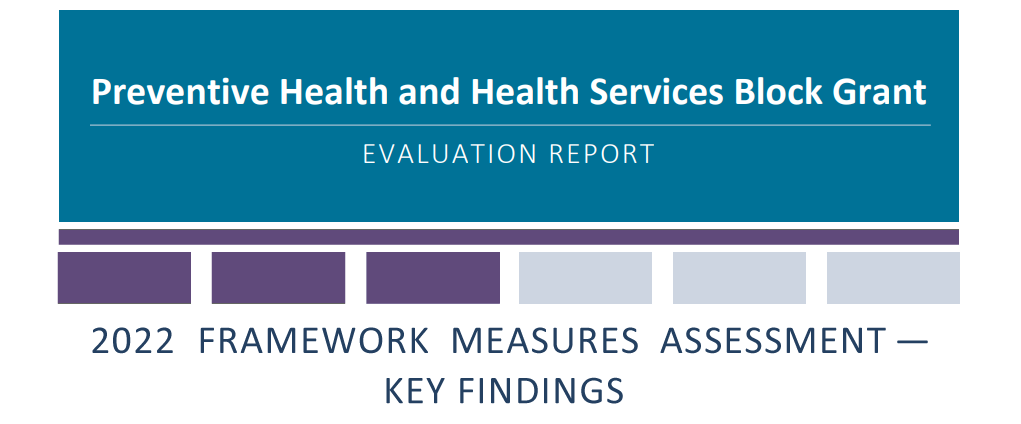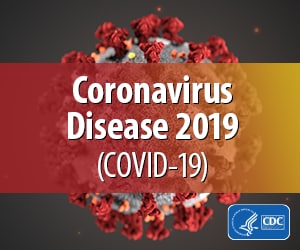Key Findings Report—2022
PHHS Block Grant Evaluation—2022 Framework Measures Assessment
Data Collection
In fall 2022, 50 out of 61 Preventive Health and Health Services (PHHS) Block Grant recipients (82%) completed a survey that assessed select outputs and outcomes achieved within recipient health departments, tribal health departments, local health departments, and local organizations during July 2021–June 2022 using grant funds.
Key Findings
Overall, findings show that the PHHS Block Grant helped strengthen the public health system by enabling state, tribal, local, and territorial agencies to use grant funds to improve public health infrastructure, address emerging public health needs, and practice evidence-based public health.
Public Health Infrastructure Improved
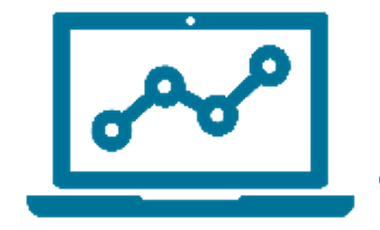
The PHHS Block Grant supports public health agencies in improving their capacity to collect or enhance data. The data collected by public health information systems are essential for identifying, prioritizing, and effectively addressing public health problems. These systems provide timely, actionable data for decision-making by the recipient agency, and the local and tribal health departments and local organizations that use these systems.
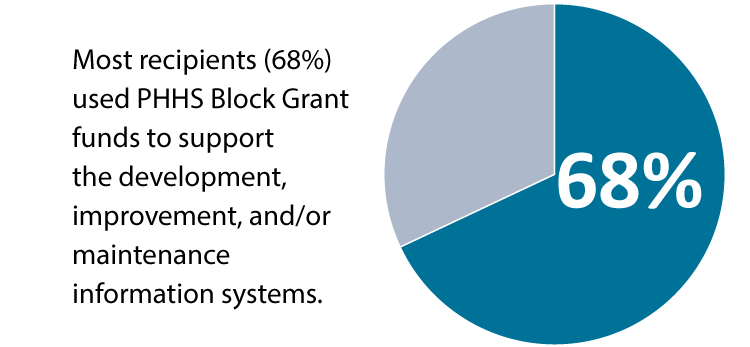
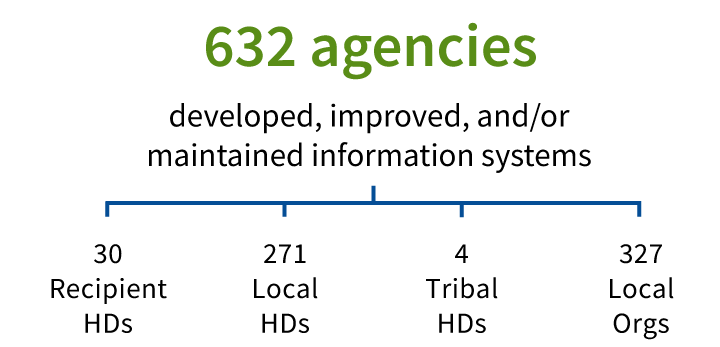
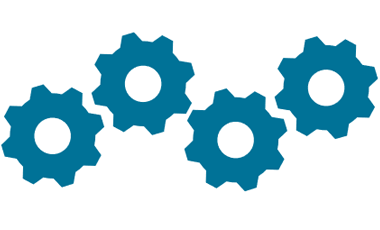
The PHHS Block Grant supports improvements in the quality of public health agency operations, programs, and services. Recipients are using PHHS Block Grant funds to improve efficiency and effectiveness within their agencies and in other agencies within their jurisdiction. These quality improvement activities contribute to recipients’ ongoing efforts toward measurable improvements in services or processes that improve their communities’ health.
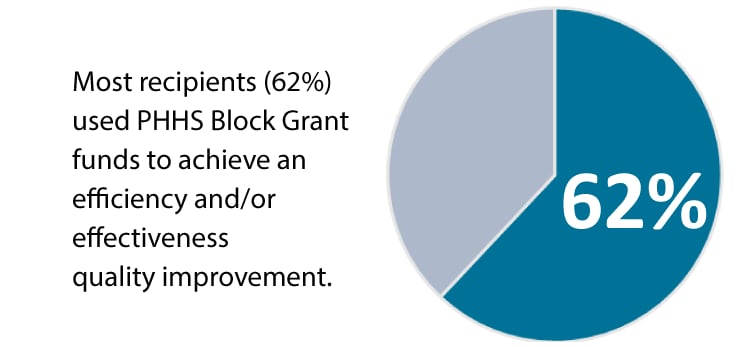
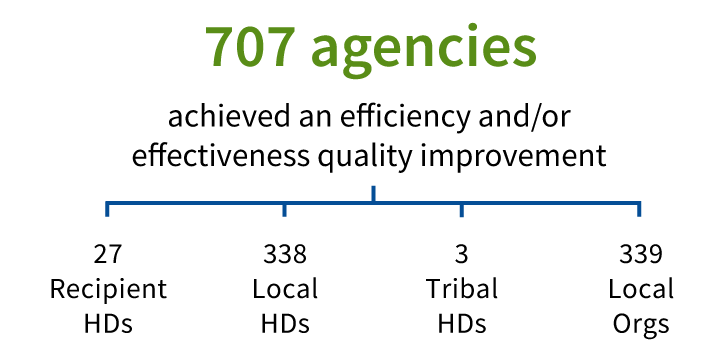
Emerging Public Health Needs Addressed
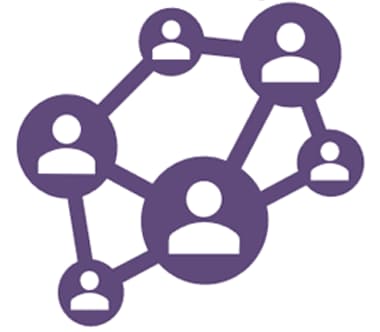
The PHHS Block Grant supports public health agency efforts to address emerging public health needs unique to their jurisdiction, such as opioid/prescription drug abuse and other challenges. Protecting and improving public health often requires flexibility to tackle public health problems as they emerge within the varying contexts in states, tribes, and territories. The PHHS Block Grant funds are used as a resource for public health agencies to address their jurisdictions’ emerging public health needs.
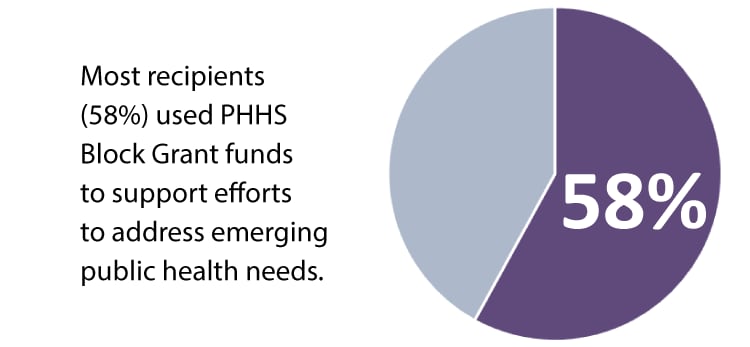
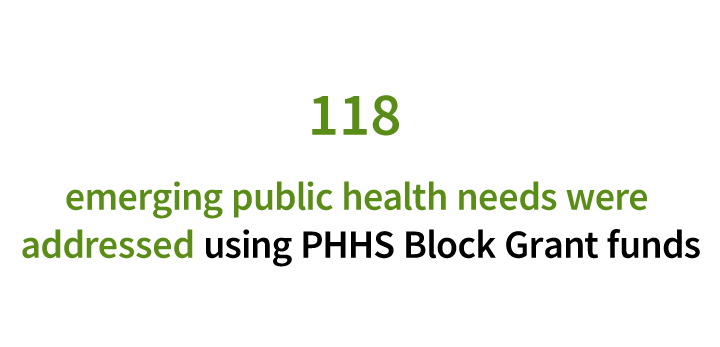
Evidence-Based Public Health Practiced
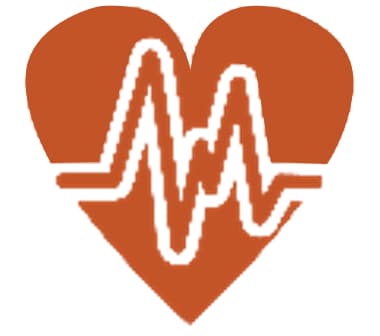
The PHHS Block Grant supports the implementation of public health interventions1 that are known to work. Implementing public health interventions based on the best available evidence is an important practice for maximizing public health outcomes. Many recipients used grant funds to implement public health interventions, most of which were evidence based.
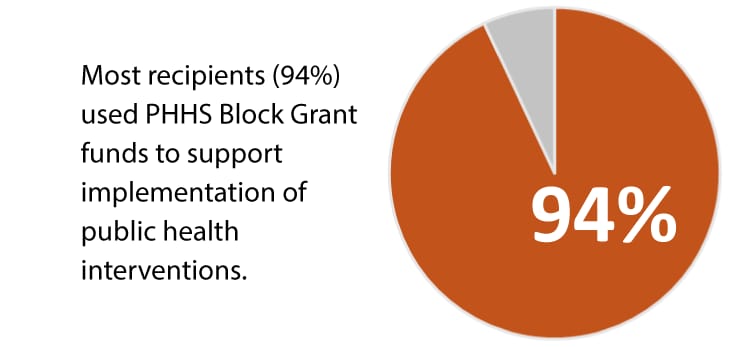
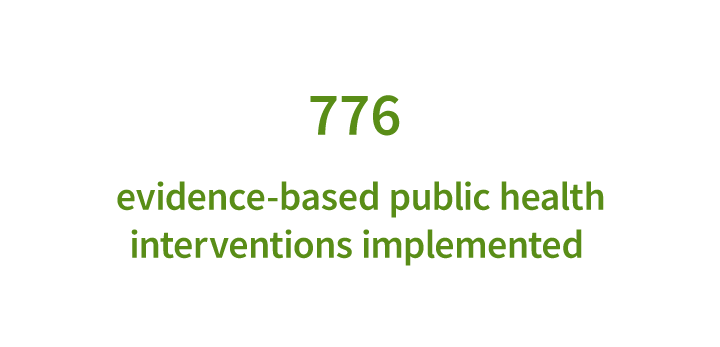
- For the purposes of this evaluation, public health interventions are defined as any type of planned activity, such as a program, service, or policy, designed to prevent disease or injury or promote health in a group of people.
